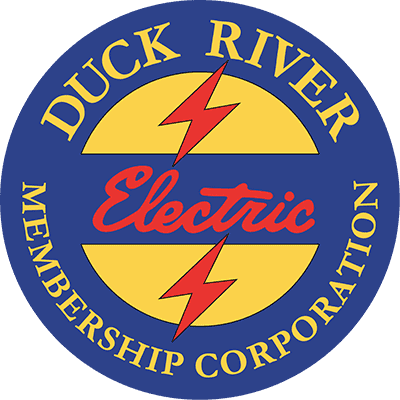28 Sep TVA, DREMC rate adjustments start Oct. 1
Rate adjustments go into effect Oct. 1 for Duck River Electric Membership Corporation (DREMC) residential members and commercial-industrial accounts. In addition, the Tennessee Valley Authority (TVA) will implement a wholesale rate increase.
The TVA Board of Directors in September approved a 2% hike in the wholesale cost of power. This translates to approximately 1.5% retail and will be reflected on electric bills across the TVA region.
DREMC’s retail rate adjustments are designed to be revenue neutral. For example, increased customer access charges are offset by reductions in energy costs. This rate approach was put into effect three years ago with the goal of eventually aligning kilowatt-hour pricing and the cost of wholesale power purchased from TVA.
“Most of our distribution costs will be recovered through the access charge, thus making us less vulnerable to the effects of very high and low temperatures. Concerning energy use, our co-op members will pay nearer to the actual cost of power generation and transmission from TVA,” explains Michael Watson, DREMC president and chief executive officer.
DREMC members will see the following adjustments:
For residential services less than 225 amps, DREMC will increase the customer access charge by $2 per month to $26, with a corresponding reduction in retail electricity rates to make the adjustment revenue neutral.
For residential services greater than 225 amps, DREMC will increase the customer access charge by $2 per month to $31, with a corresponding reduction in retail electricity rates.
Rate adjustments were made in several commercial classes, but these too are revenue neutral for DREMC.
In addition, a time-of-use (TOU) pilot rate was approved for GSA-2 and GSA-3 accounts. This “opt-in” schedule provides an incentive for shifting use from on-peak to off-peak hours.
“Not all commercial-and-industrial accounts will be able to move their power usage off-peak, but those who can could see significant savings in demand charges,” said Watson, adding that DREMC will reach out to businesses and industries to explain the TOU pilot rate.
Also, a new TOU residential rate is being rolled out, but on a voluntary basis. Members who avoid higher electricity use during periods of peak demand can lower their electricity bills under this rate schedule. The installation of a self-reporting meter is required due to the need to monitor power use on an interval basis.
DREMC’s website (www.dremc.com), the co-op’s Facebook page and The Tennessee Magazine will have more information about residential TOU in coming weeks.

